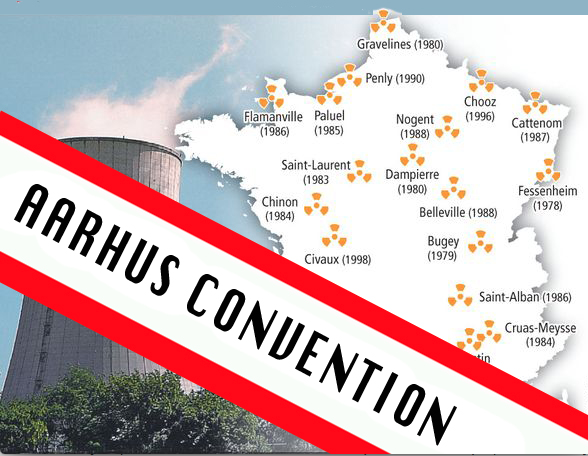France is preparing to update its triennial report on the implementation of the Aarhus Convention. This Convention deals with access to information, participation in decision-making and access to justice in environmental matters. The application of the Convention notably concerns the nuclear sector.
Following the request of the Ministry of the Environment, Energy and the Sea, ANCCLI wishes to share its experience and proposals with the application of the Aarhus Convention to the nuclear sector.
Here are some of the recommendations of ANCCLI:
ANCCLI recalls that free access to information is the norm and that secrecy, whether it is commercial, industrial or military, must be an exception. The appropriateness of the use of secrecy must be verifiable by an independent body. The ANCCLI considers that the difficulties encountered in determining what information can not be made public, in the absence of a clear process for determining whether information is protected by a form of confidentiality, should be mentioned in the obstacles encountered in the Implementation of Article 4 of the Aarhus Convention.
ANCCLI considers that work remains to be done in the provision of information in digital format. Files submitted for consultation or public inquiry are not always available on the Internet, or in a format that does not allow for thorough work. Access to files via the Internet allows the public to study the documents without having constraint of the opening time of the customer care desk.
ANCCLI considers that the provisions concerning public participation are only partially implemented in France. Local Information Commissions often lack time to work thoroughly on subjects on which they are consulted. In addition, public participation processes often arrive rather late, when the implementation of a project or important technical options have already been decided. For example, EDF is currently studying the construction of new storage capacities upon request of the ASN. The operator seems to consider only the option of one or more underwater and centralized storage facilities. In fact, other options exist. It appears that public participation will only occur at the time of the application for authorization to set up the facility or facilities, when the main technical options are already predetermined. Implementation of the Aarhus Convention would involve engaging a public participation process now, helping to discuss the various options for fuel storage.
See all recommendations of ANCCLI: Download
